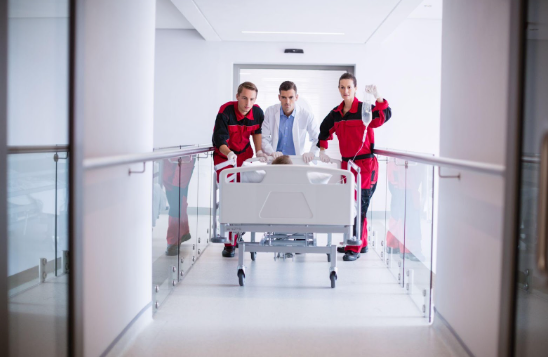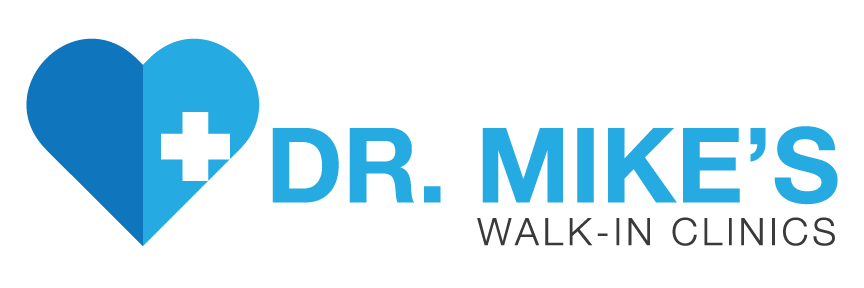Our Blog
Urgent Care 101: A Comprehensive Guide to Walk-in Medical Clinics

In healthcare, accessibility and prompt attention to medical concerns are important. Urgent care facilities have emerged as a vital component of the healthcare landscape, providing a middle ground between primary care physicians and emergency rooms.
Continue reading about the essential aspects of urgent care, offering a detailed understanding of what these walk-in medical clinics entail.
What Is Urgent Care?
Urgent care is a service that helps with sudden health issues when you can't wait for a regular doctor's appointment but don't need to rush to the emergency room. It's there for unexpected problems like injuries or illnesses that need immediate attention but aren't life-threatening.
Unlike emergency rooms, urgent care focuses on non-severe cases, providing fast service without an appointment. It's not your regular doctor, but steps in when something unexpected comes up, offering convenience with extended hours.
Common issues treated include minor injuries, illnesses like the flu, or small cuts and burns. Essentially, urgent care ensures you get swift, competent medical attention when needed most, without the urgency of a visit to the
emergency room.
History of Urgent Care
Have you ever thought about how the walk-in clinic emerged? Understanding the history of walk-in clinics is essential to assessing their quality of care. Two distinct forces were responsible for the rise of urgent care in the medical field: entrepreneurial physicians capitalizing on gaps in US healthcare delivery and managed care initiatives in Israel.
Urgent care in the US emerged with a revolutionary vision, providing convenient, patient-centric care without the administrative complexities of traditional medicine. As healthcare evolves, urgent care remains pivotal in delivering timely services. Beyond primary healthcare, walk-in clinics now extend their role to include vaccinations, preventive care, and diagnostics, contributing to community health. Urgent care serves to fill in the gaps as needed, making sure everyone can receive the care they need without having to wait hours in a hospital.
The Benefits of Walk-in Clinics
Walk-in clinics offer versatile and convenient healthcare options. Below are some of the top benefits:
Adaptable Healthcare
Walk-in clinics stand out for their adaptability, offering walk-in services, extended operating hours, and the convenience of same-day appointments. This flexibility is especially beneficial for individuals with busy schedules or unexpected health concerns, ensuring timely access to medical attention.
Broad Spectrum of Services
The clinics are well-equipped to address a diverse range of medical issues. It provides a comprehensive spectrum of services, from handling minor injuries like sprains to addressing more complex health problems like urinary tract infections. This versatility makes them a go-to option for various healthcare needs.
Shorter Wait Times
Walk-in clinics are known for their higher availability and shorter wait times. Patients can receive prompt attention and quicker access to medical care. This promotes efficiency and reduces the overall time spent waiting for assistance. With the added convenience of urgent care facilities, patients can now receive the care they need promptly without sacrificing quality or safety. On top of that, those that might have otherwise gone to a hospital are seen to, meaning those that need more urgent care at the hospital also have a shorter wait time.
How Does Urgent Care Work?
Urgent care operates on a straightforward yet efficient model, catering to immediate health needs with a patient-centric approach. It often adopts an integrated approach, collaborating with primary care physicians and specialists to ensure seamless continuity of care.
Medical records and treatment plans are often shared between urgent care facilities and primary care providers to provide a more cohesive healthcare experience for the patient. These clinics also usually accept various insurance plans, making healthcare services more accessible. Additionally, many clinics offer transparent pricing for individuals without insurance,
clarifying the cost of services upfront. This allows for clarity that might not otherwise be received from a healthcare facility.
Choosing the Right Urgent Care Clinic
Selecting an urgent care clinic involves a thoughtful evaluation of several crucial factors to ensure that you receive optimal and reliable healthcare services. Here's a detailed guide to making an informed decision:
Location
Consider the clinic’s proximity to your home or workplace. Opting for conveniently located urgent care will allow you to access medical attention during emergencies quickly.
Operating hours
Urgent care clinics are known for their extended operating hours and flexibility. Assess whether the clinic’s schedule aligns with your lifestyle and the potential unpredictability of health concerns.
Board-Certified Doctors
Ensure that the walk-in clinic facility employs board-certified doctors with the expertise to handle diverse medical situations. This certification indicates that the doctors have undergone rigorous training and meet the standards set by their respective medical boards.
Misconceptions about Urgent Care Centers
Some of the misconceptions about urgent care centers are:
Expenses
It is a popular misperception that people need health insurance to access urgent care. Even if your insurance covers the visit, some walk-in clinics will still take cash. However, in some instances, a personal payment may be necessary.
Equipment and facilities
Urgent care centers are well-equipped with various diagnostic instruments, including X-ray machines, MRI scanners, and fully stocked laboratories. These facilities have experienced medical professionals who work closely with patients to ensure a timely and accurate diagnosis. They are a valuable resource for those who need immediate medical attention.
Get quality healthcare at
Dr. Mike's Walk-in Clinic. We have flexible payment options, modern diagnostic facilities, and a team of dedicated professionals. Prioritize your well-being with personalized care.
Schedule your visit today!


PHONE
FAX
877-738-3841
VISIT
12143 Navajo Rd.
Apple Valley, CA 92308
HOURS
Monday – Friday
8:30 AM – 6 PM
Saturday
10 AM – 3 PM
All Rights Reserved | DR. MIKE'S WALK-IN CLINIC · 12143 NAVAJO RD. APPLE VALLEY, CA 92308 | Privacy Policy

